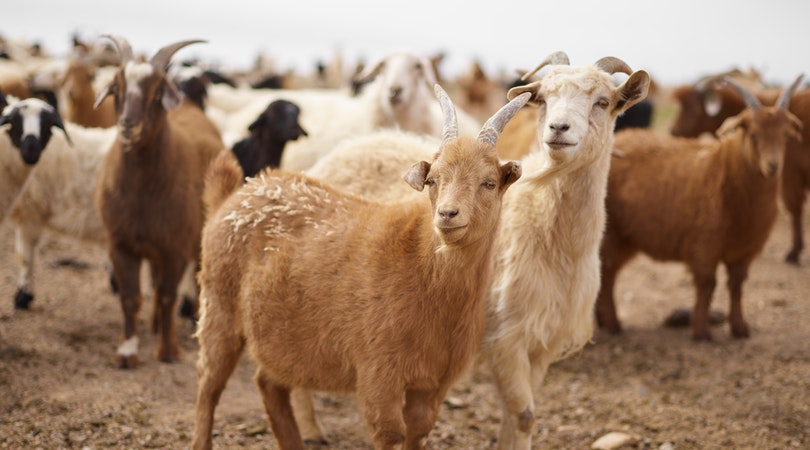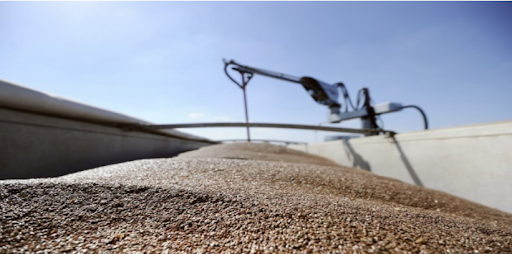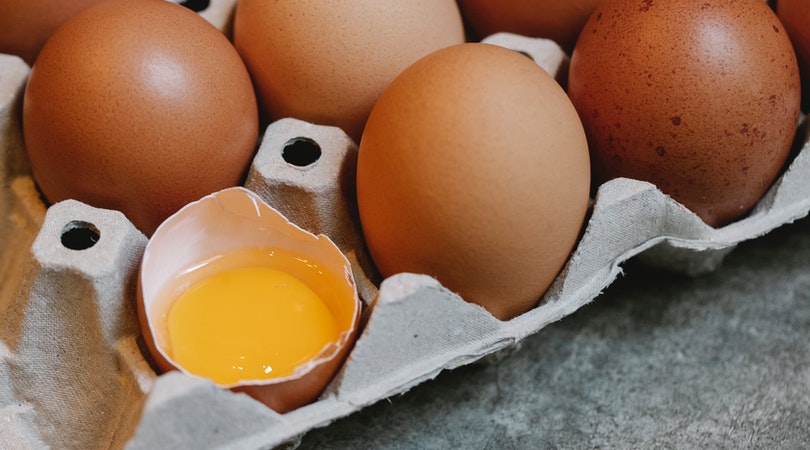Farming Businesses
How to Start Goat Farming in Nigeria
Everything you need to know about goat farming, how profitable the business is and more.

The keeping of goats in the country has been done for many years past and even up till now. This is mainly practiced in the tropics. The population of goats in this area exceeds the number available in the other zones of the world. Generally, goats are mainly kept in the tropics for meat production. Only a few breeds have a fairly good ability for milk production.
On the whole, the two major uses of goats have made goat farming to be rewarding to ranchers in Nigeria. This article will take a wide look at how to start goat farming in Nigeria.
Overview of Goat Farming
It is believed that the present-day goats originated from Capra Oegagrus. However, the hair producers are thought to have descended from Capra falconeri. The domestic goats belong therefore to the genus Capra. It is believed that domestic goats started life in the Asian mountains.
Goats are important domestic animals that can be used for commercial farming and subsistence rearing. These animals are mainly reared for meat and to some extent milk production. Goat farming is not limited to a particular area, due to how goats are noted for their ability to thrive in areas where other groups of livestock find very difficult to live in.
The reasons for wide adaptations are attributed to the following qualities:
1. Goats are very good foragers.
2. They browse a variety of vegetation.
3. They have an appetite for so many edible materials. They do not discriminate much over food materials.
4. Above all they can withstand adverse environmental conditions, especially in the humid regions of the tropics.
The above qualities make it possible for goats to find a place in almost every home of both the rich and the poor in Nigeria and all of West Africa. They thrive more in the sub-humid or savanna regions. They enjoy browsing and free unconfined life.
Is Goat Farming Profitable?
In answering this question, we have to see how much the market holds for this product. Typically, with relatively low capital, you can start the business of goat farming. With that little investment, you will hope to yield high profits. Moreover, the daily consumption of goat meat by a lot of Nigerians creates a market and a high demand for agricultural products.
By taking a peek at commercial goat farming in the country, it is seen that the northern part of the country is most favorable to source these goats. The prices of these animals in these regions like Sokoto, Zamfara, Kebbi, Niger, Kaduna, Kano, Bauchi, and Yola states range from ₦7,000 and can be up to ₦15,000.
The case is different in southern states and cities like Lagos, Onitsha, Ibadan, and Port Harcourt. Here the average market prices of goats range from ₦10,000 to ₦25,000. For large-scale goat farming, we prefer you buy in the northern parts and sell the grown-up goats in the remote southern urban areas in Nigeria.
What to Consider Before Starting Goat Farming
Before venturing into goat farming in Nigeria, here are a couple of important things to put in mind first:
In establishing a goat flock, one has to consider the purpose of raising the stock, the market demand for the product, the cost and availability of the breeds and the goat feeds, the size of the stock, and the environment of the place the stock is to be raised. Secondly, one has to select the goat stock having decided on establishing a herd.
One should go for a popular goat breed whose progeny will be in demand and therefore yield profits for the owner. One should look into the performances of the breeds to know which breeds have performed well. Similarly, one should also consider the number of kids produced. Those goats-producing twins should be preferred.
The number of kids is an important factor in goat farming. The economic yield of goats depends on the number of kids the goats are able to raise. Also, breeds with fast rates of growth should be preferred too, for the offspring of such breeds will have a high conversion rate. One should also consider the general appearance of the animals.
Another important factor one should consider is the age is the goat stock to establish. That is on what you should consider before entering into goat farming. The following paragraph will incorporate information on how to start goat farming in the country.
How to Start Goat Farming in Nigeria
These are the steps on how to start goat farming in Nigeria. They include the following:
1. Systems in Goat Keeping
Normally, goats enjoy free movement and resist confinement. They do best if left free to browse vast areas of pasture which are also known as free-range farming. Their destructive habits make it dangerous to let them move freely in areas where crops are planted or where there are not extensive uncultivated fields for them to herd.
Goats are therefore usually kept under three main systems, namely:
A. Tethering System in Goat Farming
The method of keeping goats tethered to a stake by means of a string or chain. The goat moves depending on the radius of the chain. This method is mainly practiced in local goat farming, especially in Nigeria and West Africa.
B. Semi-stall Feeding
This is a system of providing an enclosure for the goats in goat farming.
C. Herding in Goat Farming
This is the system of providing the goats with enough fields to browse and choose from a variety of vegetation and weed. This is an ideal condition for their keeping.
2. Feeding your Goats
The art and practice of feeding animals like goats you need to take into consideration the age, and the type of goat feed to buy. Usually, goats from the fourth week to the sixth month are fed kid feed or ration which has large protein content in it and milk is incorporated in the feed program.
Goats from beyond that range are given about 0.4 kg of concentrates daily in addition to about 1 kg of silage. Water should be made available to the goats although they do not take much of it.
3. Breeding your Goats
The female and male goats reach sexual maturity as early as six months. They however do not breed or mate till they are nine months old. The female may be left until it is a year or a year and a half. This is a good practice in well-managed flock breeding. This gives them enough time to develop.
The male goat is fully used only when two years old – at this stage it may be kept for 100 does. The average gestation period in goats is 150 days but some individuals can give birth to their kid after 145 days of pregnancy. However, the period may extend to 153 days. Goats usually kid three times in two years.
The number of kids’ pet parturition is one for some goats, two for some, and occasional cases of three kids are gotten.
4. Diseases Control among Goats
The diseases of goats differ in relation to the location of the goats. The goats in the rain forest areas for example have certain diseases which they suffer from and which differ from the diseases associated with the goats of the savanna region or the temperate regions.
In Nigeria, a few of the most common diseases of goats are Enteritis pneumonia (scouring), Trypanosomiasis, Helminthiasis, and Scabies. In controlling these diseases, the sanitary aspect of management has to be intensified. The affected goats should be separated quickly and contamination of the water, feed, and equipment used should be separated too.
Upon the detection of the outbreak, a veterinary officer should be consulted without delay for the necessary medication.
Common Goat Breeds in Nigeria
There are different breeds of goats in Nigeria but the descendants of the originally domesticated goats fall under few breeds. These include the breeds in the tropics and temperate zones of the world.
However, the breeds found in the tropics like Nigeria include:
1. West Africa Dwarf Goats
These are short-legged meat-type goat breeds. They have an average weight of about 27.2 kg, and they thrive in humid regions.
2. Sapel Goats
This is a long-legged meat breed with an average weight of 18.0 kg. It is found in West Africa.
3. Cutch Goats
This is a meat-type goat breed with long legs and an average weight of 36.3 kg to 41 kg though the specie is very rare in the country.
4. Hejazi of Arabic Goats
The Hejazi of Arabic and the moxoto of pernambuco goats are varieties similar to the West African Dwarf goats both in shape and weight.
Where to Buy Boer Goats in Nigeria
Boer goats are another variety of goats that is available in the country. If you are looking for where to source this kind of animal, then the following will be a guide to making the deal. Below is the list of Boer Goats Suppliers and Exporters in the country. You can choose any of these buyers, get their contacts and buy your Boer goat breed from them.
They include the following:
1. Toyin’s Agro Business Concept
2. Beeleejay Livestock Enterprises
3. Topnotch Farm
4. Apase Farm
5. Enomfon Enterprises
6. Kelracle Farms Ltd.
7. Ezilamba Farms Nigeria
There are others who also deal with this kind of goat. You can look for information on the places to buy these goats in your locality.
Conclusion
That is the size of this article on how to start goat farming in Nigeria. We believe you now have knowledge of what is involved in rewarding agribusiness. We wish you success in your goat farming business.
Recommended:
- How to Start Grinding Business in Nigeria
- How to Attract Customers on Social Media
- How to Promote Your Business on Twitter in Nigeria
- How to Start Crayfish Business in Nigeria
- The 10 Richest Farmers in Nigeria
📡Join Our Social Media Channels:
Facebook: theinfoWorth
YouTube: Ralph Finance









